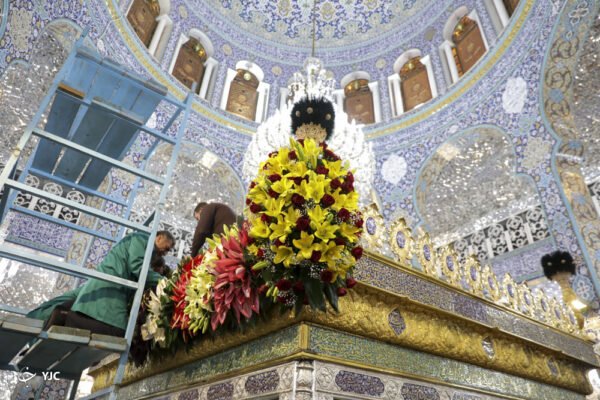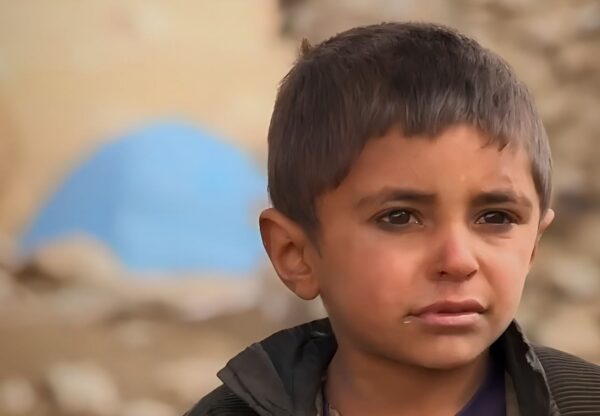Imam Ali (a.s), raised by the Prophet (pbuh) from a very young age, learned knowledge, wisdom and morality from him. Imam Ali (a.s), son of Abu Talib and grandson of ‘Abd al-Muttalib, was the first who believed in, joined and prayed behind the Messenger of Allah (pbuh). In fact the first person who embraced Islam after Muhammad (pbuh) was Imam Ali (a.s). “For seven years, the angels and Ali had been praying with me, while there was no one else there beside me,” the Holy Prophet (pbuh) said.
Imam Ali (a.s) also says in Nahj al-Balagha: “My Lord! I am the first who returned to you, heard your divine message, and accepted the call of your Prophet. Indeed no one has overtaken me except your Prophet.”
There is a well-known tradition from the Holy Prophet (pbuh) widely narrated by the scholars and traditionalists in their books that the Holy Prophet (pbuh) prophesied, this nation will have twelve leaders and guides and all of them will be from Quraish. The one who has distanced himself from them, will be among the losers, because his death will be that of ignorance.
The tradition of the Holy Prophet (pbuh) clearly highlights that there will only be twelve Imams till the Day of Judgment and all these leaders will be from the tribe of Quraish , from Bani Hashim, all chosen by Allah Almighty.
Regarding the tradition from the Holy Prophet (pbuh), “I leave among you two weighty things (Saqalain), the Book of Allah and my progeny”.
Imam Ali (a.s) was asked, who is the progeny? He replied:
I, Hasan , Husayn and the nine Imams from the progeny of Husayn, of whom the ninth one will be the Mahdi. Neither will they separate from the Book of Allah nor will the Book of Allah separate from them, till they meet the Messenger of Allah at the Pool of Kausar.”
Imam Ali (a.s), the first divine successor of the Holy Prophet(pbuh) was the only leader in history who milled during his presidency and patched his shoes. He is the only righteous man who was always on the right direction. Even if all people were allied against him, and the earth, the plain, and the desert were filled with the enemies, he would never be afraid of following the straight path. Imam Ali (a.s) was not like other rulers who contemplated their own governance and neglected the guidance, which is the most important duty of a ruler. For this reason, Nahj al-Balagha is full of theoretical and practical ethics guidelines. Imam Ali’s moral expressions have a significant dependence on his worldview and etymology.
Backbiting and gossiping about people, dispute, obstinacy, enmity, anger, jealousy, arrogance, greed, and prejudice are examples of the undesirable and unpleasant immorality that Imam Ali has dealt with in the book, and on the other hand, politeness, controlling the tongue, acting the good deeds, patience and perseverance, honesty, wisdom, knowledge and tolerance are of the lessons of good moral from the Commander of faithful (a.s).
Describing Ali’s virtue, Dhiraar, the son of Zamara said,
“The oppressed and the needy were not afraid that they would be oppressed from His side, and the powerful did not have a way to achieve their falsehoods”.
Another quote stated by Suda Hamdani, right after Imam Ali’s (a.s)martyrdom is,
“O God! Send your blessings on that pure soul, as when he was entombed, justice was buried along as well”.
In patience and forgiveness, Imam Ali (a.s) has overtaken all people. In order to prove this, it is enough to consider the highest levels of his patience, encountering his enemies after he won the Battle of Jamal, especially Marwan b. Hakam and ‘Abd Allah b. al-Zubayr, who were both of the most hostile opponents of Ali (a.s), and his most ardent enemies, insulting him openly, nevertheless he forgave and let them free.
Seven unique Features of Ali, son of Abu Talib (a.s), said by the Holy Prophet Muhammad (pbuh):
The Holy Prophet (pbuh) said: “O Ali, you have seven attributes that no one else has. If he did, he would never reach you to that high range.
You are the first person to believe and join my religion.
You are the most faithful to God’s covenant.
You dealt with people’s pain and you are fair with everyone.
Everywhere and at all times God’s command is a priority to you.
You have Alavi justice.
The insight of judgment in your rule is admirable.
You are of the nearest to God.












